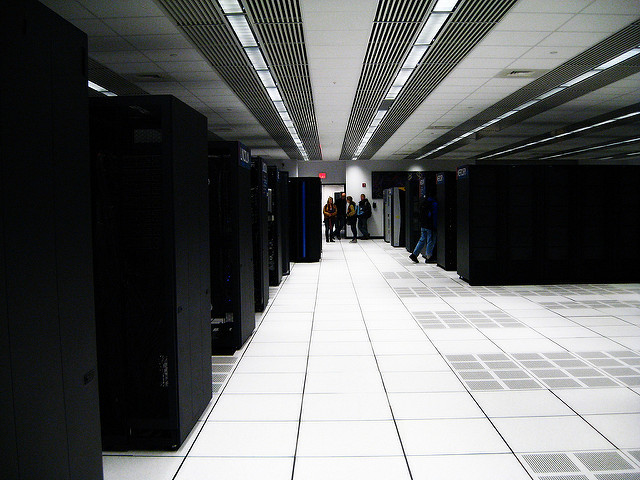The new legal and financial structure of EuroHPC, based in Luxembourg, will buy, implement and deploy a pan-European supercomputer infrastructure, according to a Luxembourg government press release published on Tuesday.
Upon its establishment in Luxembourg in the second half of 2018, the EuroHPC operational structure will also support a research and innovation programme to develop the technologies and machines (hardware), as well as the applications (software) that operate on these supercomputers, to process several billion calculations per second.
The proposal, which will be financed by the commission in conjunction with the signed-up member states, is “crucial for the EU's competitiveness and independence in the data economy,” according to the press statement, published on Thursday 11 January.
It continues:
“Supercomputers are needed to process ever larger amounts of data and bring benefits to society in many areas from healthcare and renewable energy to car safety and cybersecurity. Today, European scientists and industry increasingly process their data outside the EU because their needs are not matched by the computation time or computer performance available in the EU. This lack of independence threatens privacy, data protection, commercial trade secrets, and ownership of data in particular for sensitive applications. A new legal and funding structure--the EuroHPC Joint Undertaking--shall acquire, build and deploy across Europe a world-class High-Performance Computing (HPC) infrastructure. It will also support a research and innovation programme to develop the technologies and machines (hardware) as well as the applications (software) that would run on these supercomputers.”
Luxembourg’s prime minister Xavier Bettel stated:
“The proposal of the European Commission to place the EuroHPC structure in Luxembourg confirms the attractiveness of the Grand Duchy as an innovative country. Aligning with the national measures through the Digital Lëtzebuerg strategy, Luxembourg is also ready to play a pioneering, constructive and active role in the European digital strategy.”
The EU's contribution in EuroHPC will be around €486 million under the current multiannual fnancial framework, matched by a similar amount from member states and associated countries. Overall, around €1 billion of public funding would be invested by 2020, and private members of the initiative would also add in kind contributions.
The current signatories are Luxembourg, Italy, France, Germany, Portugal, the Netherlands, Belgium, Slovenia, Bulgaria, Switzerland, Greece and Croatia.
Mariya Gabriel, Commissioner for Digital Economy and Society added: “Supercomputers are already at the core of major advancements and innovations in many areas directly affecting the daily lives of European citizens. They can help us to develop personalised medicine, save energy and fight against climate change more efficiently. A better European supercomputing infrastructure holds great potential for job creation and is a key factor for the digitisation of industry and increasing the competitiveness of the European economy.”
The EuroHPC joint undertaking will be operational in 2019-2026. The planned infrastructure will be jointly owned and operated by its members consisting at first of the countries that have signed the EuroHPC declaration (list below) and private members from academia and industry. Other members can join this cooperation at any moment, providing a financial contribution.
Benefits of supercomputing
High-performance computing is a critical tool for understanding and responding to major scientific and societal challenges, such as early detection and treatment of diseases or developing new therapies based on personalised and precision medicine. HPC is also used for preventing and managing large-scale natural disasters, notably for forecasting the paths which hurricanes follow or for earthquake simulations.
The EuroHPC infrastructure will provide European industry and in particular small and medium-sized enterprises with better access to supercomputers to develop innovative products. The use of high performance computing has a growing impact on industries and businesses by significantly reducing product design and production cycles, accelerating the design of new materials, minimising costs, increasing resource efficiency and shortening and optimising decision processes. For example, car production cycles can be reduced thanks to supercomputers from 60 months to 24 months.
High-performance computing is also essential for national security and defence, for example when developing complex encryption technologies, tracking and responding to cyberattacks, deploying efficient forensics or in nuclear simulations.
